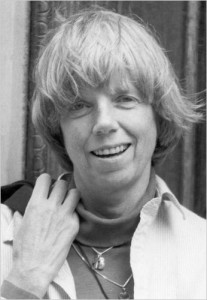A Quote by Albert Schweitzer
The friend of nature is the man who feels himself inwardly united with everything that lives in nature, who shares in the fate of all creatures, helps them when he can in their pain and need, and as far as possible avoids injuring or taking life.
Related Quotes
Christ has something in common with all creatures. With the stone he shares existence, with the plants he shares life, with the animals he shares sensation, and with the angels he shares intelligence. Thus all things are transformed in Christ since in the fullness of his nature he embraces some part of every creature.
Nature is man's inorganic body -- that is to say, nature insofar as it is not the human body. Man lives from nature -- i.e., nature is his body -- and he must maintain a continuing dialogue with it is he is not to die. To say that man's physical and mental life is linked to nature simply means that nature is linked to itself, for man is a part of nature.
It appears to Nietzsche that the modern age has produced for imitation three types of man ... First, Rousseau's man, the Titan who raises himself ... and in his need calls upon holy nature. Then Goethe's man ... a spectator of the world ... Third Schopenhauer's man ... voluntarily takes upon himself the pain of telling the truth.
There are three kinds of nature in man, as Nicetas Stethatos further explains: the carnal man, who wants to live for his own pleasure, even if it harms others; the natural man, who wants to please both himself and others; and the spiritual man, who wants to please only God, even if it harms himself. The first is lower than human nature, the second is normal, the third is above nature; it is life in Christ.
There comes a moment during which almost every girl or boy falls into melancholy; they are tormented by a vague inquietude which rests on everything and finds nothing to calm it. They seek solitude; they weep; the silence to be found in cloister attracts them: the image of peace that seems to reign in religious houses seduces them. They mistake the first manifestations of a developing sexual nature for the voice of God calling them to Himself; and it is precisely when nature is inciting them that they embrace a fashion of life contrary to nature's wish.
We know that we need to explore desire in fiction - many say that the only way a story exists is that a character feels a strong desire - and nature is the place where creatures act on their desires in the most pure way imaginable, so maybe nature also works as a metaphor for whatever emotional troubles my characters have to negotiate. I'm interested in my characters as survivors, and maybe that works best when the old-fashioned notion of humans surviving in wilderness is not too far away.
After decades of faithful study, ecologists have begun to fathom hidden likenesses among many interwoven systems. ...a canon of nature's laws, strategies, and principles...
Nature runs on sunlight.
Nature uses only the energy it needs.
Nature fits form to function.
Nature recycles everything.
Nature rewards cooperation.
Nature banks on diversity.
Nature demands local expertise.
Nature curbs excesses from within.
Nature taps the power of limits.
How shall we define occultism? The word is derived from the Latin occultus, hidden; so that it is the study of the hidden laws of nature. Since all the great laws of nature are in fact working in the invisible world far more than in the visible, occultism involves the acceptance of a much wider view of nature than that which is ordinarily taken. The occultist, then, is a man who studies all the laws of nature that he can reach or of which he can hear, and as a result of his study he identifies himself with these laws and devotes his life to the service of evolution.




































